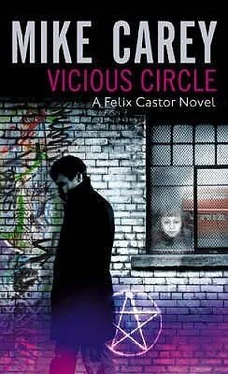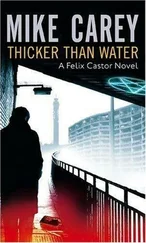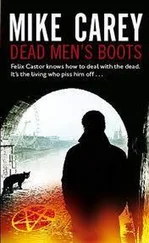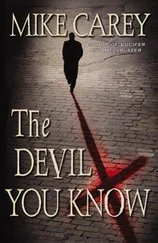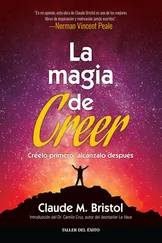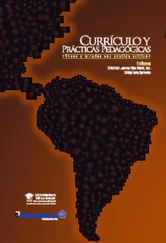There were about eighty people in the church, she went on. ‘A good house,’ the canon had said jocularly as Susan helped him into his vestments, ‘so we’d better give them a good show.’ He’d led the responses and read a psalm – just as he did every week. They were into the first of the two canticles, which was the cantate domino : ‘O sing unto the Lord a new song: for He hath done marvellous things . . .’
Susan stared at the ground, remembering.
‘There’s a place in the cantate ,’ she murmured, ‘where the choir invite the sea and the earth to make a joyous noise . . .’ I remembered it as she said it, thinking back without enthusiasm to my own confused religious education. It had never made a hell of a lot of sense to me. ‘Let the floods clap their hands.’ How, exactly? ‘And let the hills be joyful.’ Was there any way we’d be able to tell the difference?
But Susan was still talking, and I reined in my jaundiced memories.
When Canon Coombes got to ‘Let the sea make a noise,’ there was a noise; from outside, in the street. A shriek of brakes, very loud, followed by the sound of an impact: metal crunching against metal, or against something else. The mood was broken. Even the choir faltered into silence, and every eye looked towards the door.
Canon Coombes cleared his throat, and the congregation faced front again. He nodded to the choir, expecting them to take up where they’d left off. But though they opened their mouths to sing, no sound came out.
‘It got cold,’ Susan said, her voice sounding a little ragged at the edges. ‘All at once, just . . . terribly, terribly cold. I heard people gasp, and everyone was looking at everyone else, or jumping to their feet. Shocked. Scared. Not understanding it, because it was so fast.
‘And then there was something a lot worse.’
I waited, but she didn’t seem to want to say any more. She looked at Juliet, as if she needed to be told to come out with the rest of it. But Juliet just returned the stare with her own unreadable gaze, until eventually, abashed, Susan looked down at the ground.
‘Something laughed at us,’ she said.
It was so incongruous, I didn’t take it in. ‘Laughed at. . . ?’
‘Something laughed,’ Susan repeated stubbornly, defensively. ‘It came from high up, near the roof, a long way over our heads. And it was loud. It was very, very loud. It filled the church.’ She glanced across at me, her face set, as though she was certain in her own mind that I thought she was lying. ‘But I can’t describe the tone of it. I can’t make you understand what it felt like. People started to run. Or they just . . . fell down, where they were. Some of them seemed to be having fits, because their arms and legs were jerking and their mouths were wide open.
‘It was horrible! All I wanted to do was get away from that awful sound, but I couldn’t think. I started to run without even knowing where I was going. I bumped into Ben – Canon Coombes – and he didn’t even see me, but he’s so much bigger and heavier than me that I went flying. I grabbed hold of the altar rail to keep from falling, and then I couldn’t seem to let go of it. It was so cold – the cold going right through me, taking my strength away. You know you see skaters on an ice rink, clinging to the side because they’re scared to move out onto the ice? That’s what I must have looked like. I just leaned against the rail, with my head spinning, and with people screaming and running all around me.
‘Then when I did manage to get moving again, I almost tripped over a woman who’d fallen down in the aisle right in front of me. Fainted, or perhaps just hit her head on something. I couldn’t leave her there. But she was too heavy for me to carry, so I dragged her towards the door, a few feet at a time, with rests in between. The laughter had stopped by then, but there was still a sort of sense of . . . of being stared at. I was scared to look up. It really felt as if something enormous – some giant ogre – had taken the roof off the church and was peering in at us.’
Susan swallowed hard and shook her head. ‘I don’t remember getting to the door, but I must have done, because suddenly I was out on the street. The woman I’d been dragging along was still unconscious, lying on the pavement in front of me, and I realised that there was blood all over her white blouse. I thought she was dead, after all – that the laughing thing had managed to kill her somehow. But then I realised . . .’
She held out her hands for us to see. There was scabbed skin on both palms, all the way across in a broad straight line, angry and red at the top and bottom edges.
‘It was my blood, not hers. It must have happened when I touched the altar rail. The metal was so cold that my skin just stuck to it. That was why it was so hard to let go.’
It was a pretty eloquent demonstration. I listened in silence as she wrapped up her story. Everyone got out alive, although some crawled out on their hands and knees: incredibly, very few were even hurt, beyond bruised arms and cut foreheads. The ones who’d gone into fits seemed to recover quite quickly, except that they were still pale and shaking. Canon Coombes had locked up the church there and then, and told Susan to cancel the Sunday services. After which he’d fled, leaving her to call ambulances for the hurt and the traumatised (leaving red smears on the keys of her mobile phone) and to try to talk down those who were still hysterical.
On Sunday he’d called her at home. He’d spoken to the diocese, he said, and they’d authorised him to engage an exorcist – so long as it was a church-approved one. He told Susan to pick someone out of the Yellow Pages .
But Susan didn’t have a Yellow Pages , so she’d gone online instead, and Juliet’s website had been the first to come up. I wasn’t surprised. It was sometimes the first to come up when your search string was ‘Chinese restaurants’ or ‘plumbers’: I was pretty sure she’d done something to Google that was both illegal and supernatural.
The site listed Juliet’s church accreditations – Anglican and Catholic – as pending. Susan thought that was good enough, and called her.
‘And now here you are,’ she finished, brightly. ‘Two for the price of one.’ She smiled her tentative smile at us both, turning her head to left and right to do it. It was the first time she’d acknowledged my presence since she’d started to tell her story.
‘Here we are,’ I agreed. I stood up. ‘And I guess we’d better confer about the case. Could you excuse us for a moment?’
‘Of course,’ said Susan, blushing a hectic red. ‘I have to lock up again, anyway.’
She got up and bustled away, keys jangling. Juliet and I retreated up the hill to the Rybandt vault, with full night coming on.
‘So you think it’s a demon, rather than a human soul?’ I said, when I was sure we couldn’t be overheard.
Juliet didn’t answer for a moment. When she did, I got the sense that she was measuring her words. ‘The scions of Hell,’ she said, ‘I know by their habits and by their spoor. It’s not likely that any of them could be this close to me without me knowing it. But it would take one of the older powers to do that on hallowed ground. Just as it takes all my strength to enter a place like that and not be hurt by it. I have to prepare myself, put a guard up – and not stay there very long.’
‘Then what? What do you reckon it is?’
She turned to face me, and I could see that she was troubled. Which meant that she was letting me see, because Juliet can control her body language in the same way that a fly-fisher can place a lure. ‘If it wasn’t for the cold,’ she said, ‘and for the other signs, I’d swear that there was nothing here. Whatever it is, it has no smell. No body. No focus.’ She sought for words and grimaced as if she didn’t like the ones she’d found. ‘Weight without presence.’
Читать дальше
